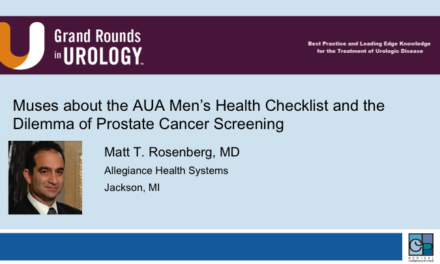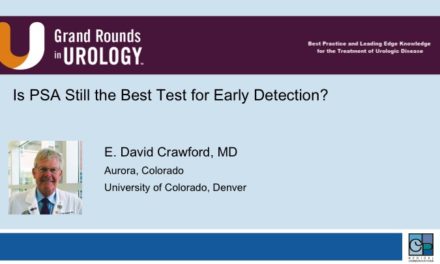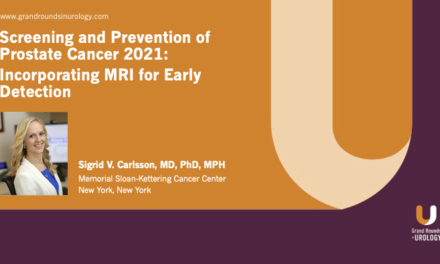Gerald L. Andriole, Jr., MD, presented “Fluciclovine (18F) PET/CT Impact on Clinical Management of Recurrent Prostate Cancer” during the 29th Annual International Prostate Cancer Update on January 25, 2019 in Beaver Creek, Colorado.
How to cite: Andriole, Jr., Gerald L. “Fluciclovine (18F) PET/CT Impact on Clinical Management of Recurrent Prostate Cancer” January 25, 2019. Accessed Apr 2024. https://fluciclovine-18f-pet-ct-impact-on-clinical-management-of-recurrent-prostate-cancer/
Fluciclovine (18F) PET/CT Impact on Clinical Management of Recurrent Prostate Cancer
Gerald L. Andriole, MD, FACS, asserts that the fluciclovine PET-CT scan has a significant impact on the management of patients with biochemically recurrent prostate cancer.
Summary:
Gerald L. Andriole, MD, FACS, asserts that the fluciclovine PET-CT scan has a significant impact on the management of patients with biochemically recurrent prostate cancer. Prostate cancer recurs in up to 40% of patients treated with surgery or radiation therapy for presumed localized disease. Unfortunately, conventional imaging is unlikely to identify the site of recurrence until the Prostate Specific Antigen (PSA) level exceeds 20 mg/mL. Choline PET scans are an improvement over conventional imaging but are not recommended until the PSA level exceeds 20 mg/mL.
Fluciclovine PET scans identify recurrence disease in about 40% of patients with PSA levels less than 0.8 mg/mL, but identifies higher portions of patients as PSA levels rise. In a treatment impact trial of more than 200 men with biochemically recurrent prostate cancer (the LOCATE study), treatment was changed in 59% of patients once the results of the fluciclovine PET scan were known. In 78% of these cases, the treatment changes were considered to be major.






